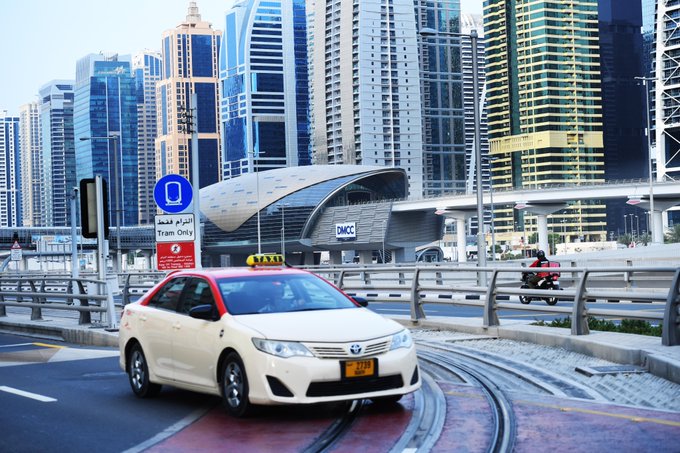Last Updated on May 29, 2023 6:35 pm by INDIAN AWAAZ

AMN / WEB DESK
If Dubai’s Roads and Transport Authority (RTA) is to be believed city public transport will be 100 Percent emissions-free by 2050. The RTA said its new plan will result in reducing CO2 emissions by 10 million tonnes while also saving $817 million in comparison to current operations.
The plan includes electric taxis, net zero buildings and sustainable waste management services.
As the first Middle Eastern agency to develop such a comprehensive long-term plan, the RTA aims to contribute to climate change mitigation and minimize its carbon footprint across three critical areas: public transportation, buildings and facilities, and waste management.
This strategic move aligns with the United Arab Emirates’ preparations for COP28 and the UAE Net Zero by 2050 Strategic Initiative, showcasing the region’s commitment to environmental sustainability. By transitioning to tangible achievements, the RTA seeks to solidify Dubai’s position as one of the world’s top urban economies, in line with the Dubai Economic Agenda D33’s objectives.
The strategy, aptly named “Zero-Emissions Public Transportation in Dubai 2050,” outlines ten key initiatives, each assigned to various agencies and sectors within the RTA. The plan includes converting all taxis, limousines, and public buses to electric or hydrogen vehicles. Additionally, the RTA aims to source clean energy and eliminate municipal waste, significantly reducing the carbon dioxide equivalent by an impressive 10 million tonnes. To achieve the strategy’s targets, the RTA will gradually convert public transport buses, taxis, and limousines to electric or hydrogen-powered vehicles. Additionally, they plan to retrofit buildings with solar cell systems, make existing streetlights 100% energy-efficient, and implement waste management programs aimed at reusing and recycling municipal waste.
Apart from its environmental benefits, the strategy promises substantial financial savings, estimated at AED3.3 billion, following its implementation. By embracing innovative services and prioritizing sustainable mobility, the RTA aims to achieve global leadership in the transportation sector.
According to Mattar Al Tayer, Director-General and Chairman of the Board of Executive Directors at RTA, this strategy is consistent with the UAE’s commitments to global, national, and local environmental goals. It aligns with various national strategies, including the UAE Net Zero 2050 Strategic Initiative, the UAE Energy Strategy 2050, and the UAE’s Green Agenda – 2030.
The RTA’s sustainability efforts have already made a significant impact. From 2014 to 2022, their initiatives led to substantial savings in electricity, water, and fuel consumption, resulting in a reduction of approximately 416,000 tonnes of equivalent emissions and saving around AED420 million.By taking this momentous step toward zero-emissions public transportation, the RTA is setting a new benchmark for sustainable mobility in the Middle East. Their commitment to environmental stewardship reflects Dubai’s dedication to building a greener and more sustainable future.
